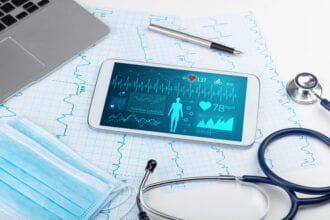 Originally published on MedCityNews.com. Once the healthcare innovator’s guide to must-know tech terms for the next decade of medicine hit on Monday, the feedback started coming in. It’s continued to trickle in via email, Twitter and LinkedIn all week. (Thank you!)
Originally published on MedCityNews.com. Once the healthcare innovator’s guide to must-know tech terms for the next decade of medicine hit on Monday, the feedback started coming in. It’s continued to trickle in via email, Twitter and LinkedIn all week. (Thank you!)
 Originally published on MedCityNews.com. Once the healthcare innovator’s guide to must-know tech terms for the next decade of medicine hit on Monday, the feedback started coming in. It’s continued to trickle in via email, Twitter and LinkedIn all week. (Thank you!)
Originally published on MedCityNews.com. Once the healthcare innovator’s guide to must-know tech terms for the next decade of medicine hit on Monday, the feedback started coming in. It’s continued to trickle in via email, Twitter and LinkedIn all week. (Thank you!)
MedCity News readers had some interesting ideas about technologies they think everyone in the healthcare space needs to know about. A few ideas came up more than once, warranting an amended list. So here you have it: five additions from readers who think these trends are about to break through in healthcare.
3D printing
I consciously left this one off the list thinking it was pretty self-explanatory, but readers were loud and clear: the cheap and automated creation of complex structures is about to disrupt healthcare. Scientists have already produced human ears, trachea and other organs, plus orthopedic implants and even stem cells. According to research firm Luxe Research, medical applications will drive much of the growth of the 3D printing market over the next several years.
3D scanning
Thanks to @HealthcareWen for bringing this one to my attention. Essentially the opposite of 3D printing, non-contact 3D scanning turns real-life images into digital models. That would be useful in recreating or mass manufacturing something, but it’s also being applied to custom-fit medical products like orthodontics, prosthetics and orthotics. Creaform markets a handheld scanner specifically for the healthcare industry.
Nanotechnology
One commenter wagged a finger at me for leaving this one off when it’s actually the fuel behind a lot of individual technologies on the list. That’s fair. However, because it’s so broadly applied and has given way to a second generation of technologies, I’m not sure it belongs under the “emerging” category. It’s definitely an important term to understand, though.
Regenerative medicine
Tissue engineering as a concept has been around for a long time, but its most disruptive applications have yet to hit prime time. Now, the advent of stem cell technology in combination with tissue engineering techniques has given way to the field known as regenerative medicine. Many promising treatments are under development for diabetes, cancer, heart conditions and numerous other diseases.
Decision-support tools for consumers
This might fit under the category of artificial intelligence, but the consumer angle is an important one. We have these tools for clinicians, but @gfry says we’ll need them for consumers in order to put really patients at the center of their own health data and healthcare as the quantified self movement moves mainstream. Companies like Asthmapolis and Predictably Well that empower patients with predictive analytics are inching in that direction.






_7-250x220.jpg)
